31st Chess Olympiad
The 31st Chess Olympiad, organized by FIDE and comprising an open[1] and a women's tournament, took place between November 30 and December 17, 1994, in Moscow, Russia. Both tournament sections were officiated by international arbiter Yuri Averbakh of Russia.
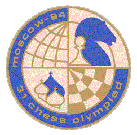
The record number of nations once again counted some old faces playing under new flags. Yugoslavia was back, but now represented by the federation of Serbia-Montenegro. Another former Yugoslav republic, Macedonia, also made its debut, as did the Czech Republic and Slovakia who competed individually for the first time. Finally, the International Braille Chess Association entered two truly international teams.
The Russian team retained their title, captained by PCA world champion Kasparov. Due to a dispute with the national federation, FIDE champion Anatoly Karpov was not present. A strong performance from Bosnia-Herzegovina, led by Nikolić, earned them the silver, while the Russian "B" team of juniors, somewhat surprisingly, took the bronze—the first and only time that the same nation has occupied more than one medal rank.
Open event
The open division was contested by 124 teams representing 122 nations plus Russia "B" and the IBCA. The time control for each game permitted each player 2 hours to make the first 40 of his or her moves, then an additional 1-hour to make the next 20 moves. In the event of a draw, the tie-break was decided by 1. The Buchholz system; and 2. Match points.
Open event # Country Players Average
ratingPoints Buchholz 1  Russia
RussiaKasparov, Kramnik, Bareev, Dreev, Tiviakov, Svidler 2714 37½ 2 .svg.png.webp) Bosnia and Herzegovina
Bosnia and HerzegovinaP. Nikolić, Sokolov, Kurajica, Dizdarević, N. Nikolić, Milovanović 2585 35 3  Russia "B"
Russia "B"Morozevich, Zviagintsev, Ulibin, Rublevsky, Sakaev, Yemelin 2570 34½ 457.5 # Country Average
ratingPoints Buchholz MP 4  England
England2630 34½ 5  Bulgaria
Bulgaria2570 34 453.0 6  Netherlands
Netherlands2610 34 450.5 7  United States
United States2598 34 432.5 8  Hungary
Hungary2619 33½ 449.5 9  Ukraine
Ukraine2624 33½ 448.5 10 .svg.png.webp) Georgia
Georgia2564 33½ 446.5 11  China
China2530 33½ 443.5 12 .svg.png.webp) Belarus
Belarus2565 33½ 434.0 13 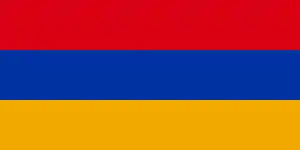 Armenia
Armenia2601 33 442.5 14  Israel
Israel2611 33 438.0 15 %253B_Flag_of_Serbia_and_Montenegro_(2003%E2%80%932006).svg.png.webp) FR Yugoslavia
FR Yugoslavia2546 32½ 453.0 16  Germany
Germany2611 32½ 452.0 17  Estonia
Estonia2536 32½ 449.5 18  Spain
Spain2525 32½ 440.0 19  Latvia
Latvia2595 32 437.0 20  Cuba
Cuba2508 32 433.0 18 21 .svg.png.webp) Philippines
Philippines2465 32 433.0 16 22  Iceland
Iceland2553 32 432.0 23 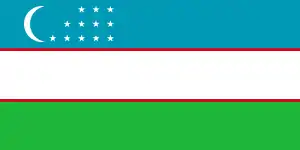 Uzbekistan
Uzbekistan2569 32 427.5 24 .svg.png.webp) Lithuania
Lithuania2528 31½ 448.5 25  Romania
Romania2495 31½ 438.5 26  Croatia
Croatia2555 31½ 435.0 27  Poland
Poland2496 31½ 427.5 28  Denmark
Denmark2501 31 440.0 29  Czech Republic
Czech Republic2521 31 431.5 30  Slovakia
Slovakia2504 31 422.0 31  Switzerland
Switzerland2509 31 421.5 32  Indonesia
Indonesia2464 31 420.5 33  Argentina
Argentina2519 30½ 436.5 34  France
France2529 30½ 432.5 35 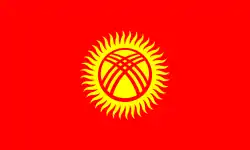 Kyrgyzstan
Kyrgyzstan2428 30½ 421.0 36  Azerbaijan
Azerbaijan2188 30½ 420.0 37  Slovenia
Slovenia2455 30½ 416.0 38  Peru
Peru2495 30½ 410.5 39  Mexico
Mexico2415 30½ 403.5 40 .svg.png.webp) Turkmenistan
Turkmenistan2418 30 425.0 41  Moldova
Moldova2499 30 424.0 42 .svg.png.webp) Australia
Australia2476 30 423.5 43  Greece
Greece2501 30 421.5 44 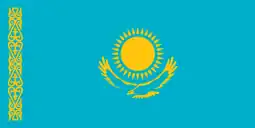 Kazakhstan
Kazakhstan2486 30 420.5 45 .svg.png.webp) Macedonia
Macedonia2440 30 418.0 46 .svg.png.webp) Belgium
Belgium2345 30 405.0 47  Norway
Norway2464 29½ 430.5 48 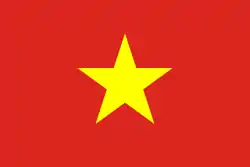 Vietnam
Vietnam2394 29½ 418.5 49  Turkey
Turkey2395 29½ 408.5 15 50  Portugal
Portugal2449 29½ 408.5 14 51  Finland
Finland2375 29½ 407.0 52 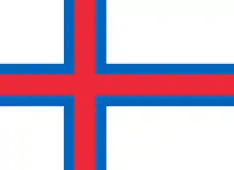 Faroe Islands
Faroe Islands2260 29½ 367.5 53  Italy
Italy2448 29 411.5 54  Scotland
Scotland2428 29 409.5 55 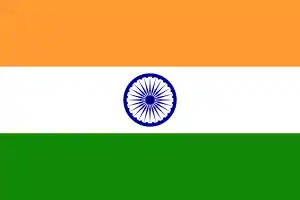 India
India2475 29 398.0 56  Ireland
Ireland2303 29 394.5 57 .svg.png.webp) Tunisia
Tunisia2381 29 393.0 58  South Africa
South Africa2265 29 392.0 59  Austria
Austria2431 29 388.0 60  Albania
Albania2343 29 384.0 61  Chile
Chile2400 28½ 405.5 62  Brazil
Brazil2510 28½ 402.0 63  Luxembourg
Luxembourg2333 28½ 396.5 64  United Arab Emirates
United Arab Emirates2148 28½ 367.5 65 .svg.png.webp) Canada
Canada2440 28 413.0 66 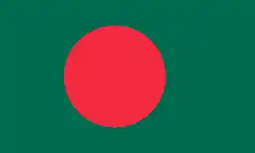 Bangladesh
Bangladesh2420 28 410.0 67  Morocco
Morocco2270 28 399.0 14 68 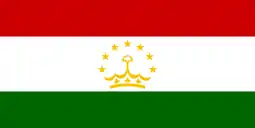 Tajikistan
Tajikistan2320 28 399.0 12 69  Egypt
Egypt2385 28 395.5 70 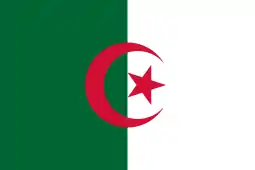 Algeria
Algeria2268 28 377.5 71  Mongolia
Mongolia2341 27½ 397.5 72  Ecuador
Ecuador2180 27½ 386.5 73  Dominican Republic
Dominican Republic2193 27½ 372.5 74  New Zealand
New Zealand2314 27½ 371.0 75  Nigeria
Nigeria2184 27½ 370.5 76 .svg.png.webp) Wales
Wales2178 27½ 367.5 77  Singapore
Singapore2359 27 392.5 78  Uruguay
Uruguay2391 27 388.5 79  Colombia
Colombia2349 27 368.5 80 IBCA 2255 26½ 81  Costa Rica
Costa Rica2289 26 377.5 82  Iran
Iran2210 26 375.5 83  Zimbabwe
Zimbabwe2135 26 359.5 84 .svg.png.webp) Hong Kong
Hong Kong2171 26 354.0 85 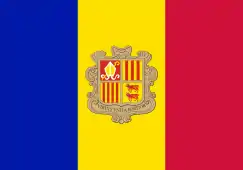 Andorra
Andorra2134 26 348.5 86 .svg.png.webp) Iraq
Iraq2300 25½ 390.0 87 .svg.png.webp) Japan
Japan2261 25½ 382.5 88  Thailand
Thailand2128 25½ 380.0 89 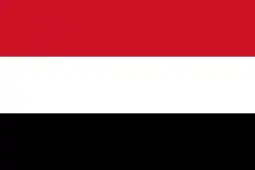 Yemen
Yemen2000 25½ 373.5 90 .svg.png.webp) Paraguay
Paraguay2286 25½ 372.0 91  Liechtenstein
Liechtenstein2204 25½ 360.5 92 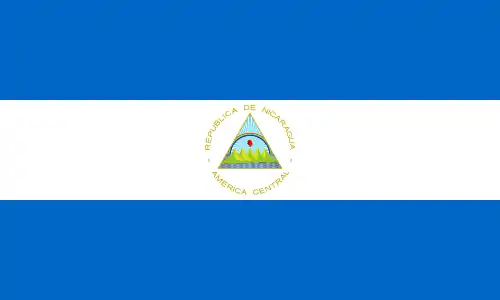 Nicaragua
Nicaragua2183 25½ 355.0 93  Angola
Angola2206 25½ 356.5 94  Guatemala
Guatemala2053 25½ 316.5 95  Lebanon
Lebanon2190 25 375.0 96  Malaysia
Malaysia2051 25 368.5 97  El Salvador
El Salvador2058 25 357.5 98 .svg.png.webp) Venezuela
Venezuela2041 24½ 378.0 99 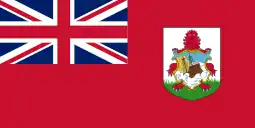 Bermuda
Bermuda2040 24½ 364.5 100  Jordan
Jordan2213 24½ 363.0 101 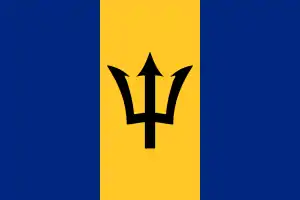 Barbados
Barbados2123 24½ 343.5 102 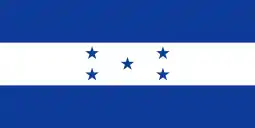 Honduras
Honduras2000 24½ 329.5 103 .svg.png.webp) Netherlands Antilles
Netherlands Antilles2026 24½ 322.5 104 .svg.png.webp) Puerto Rico
Puerto Rico2250 24 373.0 105  Qatar
Qatar2190 24 364.5 106  Sudan
Sudan2146 24 349.0 107  Malta
Malta2094 24 345.0 108  Haiti
Haiti2054 24 324.5 109 .svg.png.webp) Zambia
Zambia2051 23½ 368.0 110 .svg.png.webp) Cyprus
Cyprus2105 23½ 355.0 111 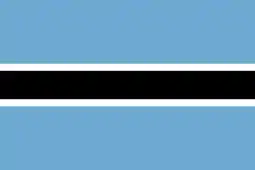 Botswana
Botswana2199 23½ 347.5 112  Fiji
Fiji2043 23½ 327.5 113 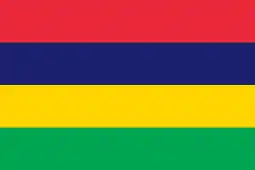 Mauritius
Mauritius2051 23½ 322.0 114  Macau
Macau2000 23½ 315.0 115  British Virgin Islands
British Virgin Islands2118 23 321.5 116 .svg.png.webp) San Marino
San Marino2053 23 319.5 117  Palestine
Palestine2000 23 314.5 118  Monaco
Monaco2000 22½ 119 .svg.png.webp) Bahrain
Bahrain2000 22 120  Panama
Panama2000 21½ 121  Namibia
Namibia2000 19 122 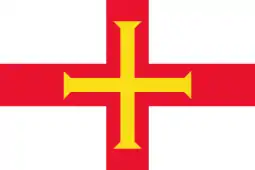 Guernsey and
Guernsey and  Jersey
Jersey2000 15½ 123 .svg.png.webp) Seychelles
Seychelles2000 14 124  United States Virgin Islands
United States Virgin Islands2000 11
Individual medals
- Performance rating:
 Veselin Topalov 2781
Veselin Topalov 2781 - Board 1:
 Daniel Hugo Cámpora 7½ / 9 = 83.3%
Daniel Hugo Cámpora 7½ / 9 = 83.3% - Board 2:
 Carlos Dávila 11 / 14 = 78.6%
Carlos Dávila 11 / 14 = 78.6% - Board 3:
 Ennio Arlandi 7½ / 9 = 83.3%
Ennio Arlandi 7½ / 9 = 83.3% - Board 4:
 Yasser Seirawan 8½ / 10 = 85.0%
Yasser Seirawan 8½ / 10 = 85.0% - 1st reserve:
.svg.png.webp) Leighton Williams 6 / 7 = 85.7%
Leighton Williams 6 / 7 = 85.7% - 2nd reserve:
 Brian Kelly 5½ / 7 = 78.6%
Brian Kelly 5½ / 7 = 78.6%
Women's results
The women's division was contested by 81 teams representing 79 nations plus Russia "B" and the IBCA. The time control for each game permitted each player 2 hours to make the first 40 of his or her moves, then an additional 1-hour to make the next 20 moves. In the event of a draw, the tie-break was decided by 1. The Buchholz system; and 2. Match points.
The Georgian team, led by former world champion Chiburdanidze, retained their title. Hungary returned to the medal ranks due to the return of Zsuzsa and Zsófia Polgár. Meanwhile, little sister Judit played first board for the Hungarian team in the open event - the first woman to do so. China, captained by reigning world champion Xie Jun, took the bronze.
# Country Players Average
ratingPoints Buchholz 1 .svg.png.webp) Georgia
Georgia Chiburdanidze, Ioseliani, Arakhamia-Grant, Gurieli 2463 32 2  Hungary
HungaryZsuzsa Polgár, Zsófia Polgár, Mádl, Csonkics 2472 31 3  China
ChinaXie Jun, Peng Zhaoqin, Qin Kanying, Zhu Chen 2420 27 351.0 # Country Average
ratingPoints Buchholz 4  Romania
Romania2357 27 346.0 5  Ukraine
Ukraine2340 25 6  Estonia
Estonia2255 24½ 336.5 7  Germany
Germany2352 24½ 326.0 8  England
England2270 24½ 320.5 9  Israel
Israel2260 24 346.0 10  Russia
Russia2382 24 342.0 11  Kazakhstan
Kazakhstan2267 24 338.0 12  Russia "B"
Russia "B"2238 24 337.5 13  Bulgaria
Bulgaria2317 24 328.0 14  Vietnam
Vietnam2120 24 324.5 15 .svg.png.webp) Belarus
Belarus2263 24 322.5 16  Greece
Greece2280 24 314.0 17 %253B_Flag_of_Serbia_and_Montenegro_(2003%E2%80%932006).svg.png.webp) FR Yugoslavia
FR Yugoslavia2378 23½ 332.5 18  Azerbaijan
Azerbaijan2352 23½ 329.5 19  Croatia
Croatia2258 23½ 324.5 20  Poland
Poland2298 23½ 309.0 21  Czech Republic
Czech Republic2227 23½ 304.0 22  United States
United States2317 23 329.5 23 .svg.png.webp) Lithuania
Lithuania2212 23 304.5 24  Armenia
Armenia2203 22½ 323.5 25  Cuba
Cuba2203 22½ 322.0 26 .svg.png.webp) Bosnia and Herzegovina
Bosnia and Herzegovina2188 22½ 320.5 27  Latvia
Latvia2317 22½ 320.0 28  France
France2180 22½ 317.5 29  Indonesia
Indonesia2167 22½ 314.5 30  Slovenia
Slovenia2167 22½ 310.5 31  Uzbekistan
Uzbekistan2150 22½ 305.0 32  Mongolia
Mongolia2143 22½ 300.5 33  Denmark
Denmark2143 22½ 289.0 34  India
India2178 22 309.0 35  Netherlands
Netherlands2213 22 302.0 36  Argentina
Argentina2152 22 301.0 37  Switzerland
Switzerland2188 22 300.0 38  Moldova
Moldova2263 21½ 343.0 39  Spain
Spain2240 21½ 316.5 40  Kyrgyzstan
Kyrgyzstan2177 21½ 301.0 41  Norway
Norway2072 21½ 287.0 42  Slovakia
Slovakia2167 21 305.0 43  Sweden
Sweden2158 21 295.0 44  Brazil
Brazil2095 21 290.0 45 .svg.png.webp) Macedonia
Macedonia2113 20½ 294.0 46  Finland
Finland2058 20½ 289.5 47  Italy
Italy2015 20½ 276.0 48  Ireland
Ireland2032 20½ 274.5 49  Malaysia
Malaysia2012 20½ 272.0 50 .svg.png.webp) Turkmenistan
Turkmenistan2038 20 293.0 51  Scotland
Scotland2035 20 292.5 52 .svg.png.webp) Canada
Canada2090 20 287.0 53 IBCA 2115 20 285.5 54  Austria
Austria2095 20 283.0 55  Colombia
Colombia2037 20 263.0 56 .svg.png.webp) Australia
Australia2118 19½ 296.0 57 .svg.png.webp) Venezuela
Venezuela2027 19½ 288.0 58  Turkey
Turkey2040 19½ 275.0 59  Philippines
Philippines2003 19½ 265.5 60  Chile
Chile2022 19½ 248.0 61  Dominican Republic
Dominican Republic2000 19½ 219.0 62  Bangladesh
Bangladesh2110 19 294.5 63  Mexico
Mexico2000 19 273.5 64  Algeria
Algeria2000 19 244.0 65 .svg.png.webp) Wales
Wales2003 19 226.5 66  Nigeria
Nigeria2000 19 222.0 67  Ecuador
Ecuador2000 18½ 283.5 68  Portugal
Portugal2002 18½ 281.0 69  Albania
Albania2000 18½ 273.5 70 .svg.png.webp) Belgium
Belgium2000 18½ 259.5 71  Iran
Iran2000 18½ 229.0 72 .svg.png.webp) Puerto Rico
Puerto Rico2002 18 240.0 73  Singapore
Singapore2003 18 223.5 74  New Zealand
New Zealand2012 18 213.0 75  Costa Rica
Costa Rica2000 17½ 76  Zimbabwe
Zimbabwe2003 17 77 .svg.png.webp) Seychelles
Seychelles2000 14½ 78  Botswana
Botswana2000 10½ 79  Malta
Malta2000 10 213.5 80 .svg.png.webp) Netherlands Antilles
Netherlands Antilles2000 10 212.0 81  United States Virgin Islands
United States Virgin Islands2003 7½
Individual medals
- Performance rating:
 Zsófia Polgár 2625
Zsófia Polgár 2625 - Board 1: Lubov Zsiltzova-Lisenko (IBCA) 10½ / 13 = 80.8%
- Board 2:
 Zsófia Polgár 12½ / 14 = 89.3%
Zsófia Polgár 12½ / 14 = 89.3% - Board 3:
.svg.png.webp) Amelia Hernández 8½ / 9 = 94.4%
Amelia Hernández 8½ / 9 = 94.4% - Reserve:
 Elena Sedina 10½ / 12 = 87.5%
Elena Sedina 10½ / 12 = 87.5%